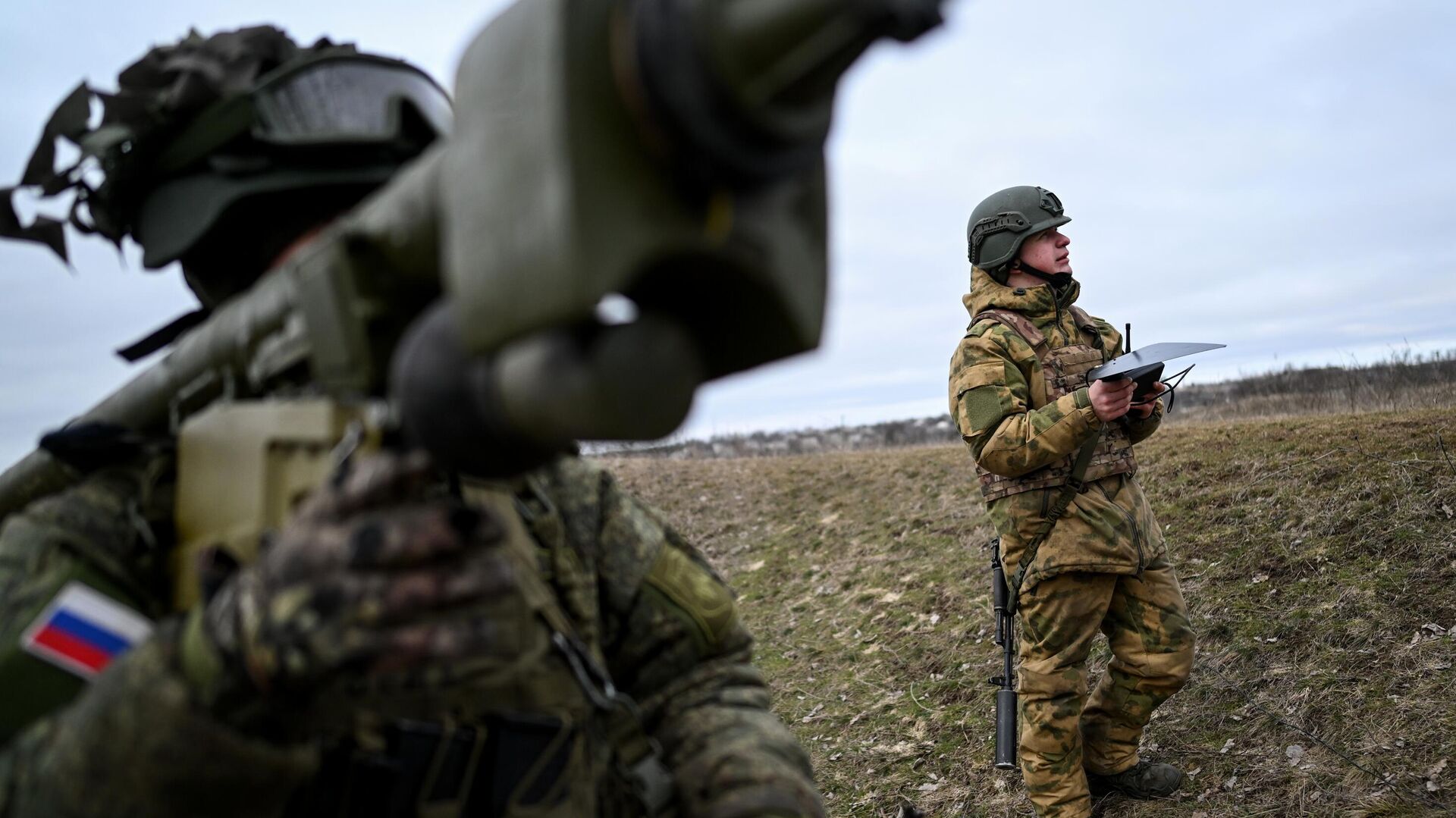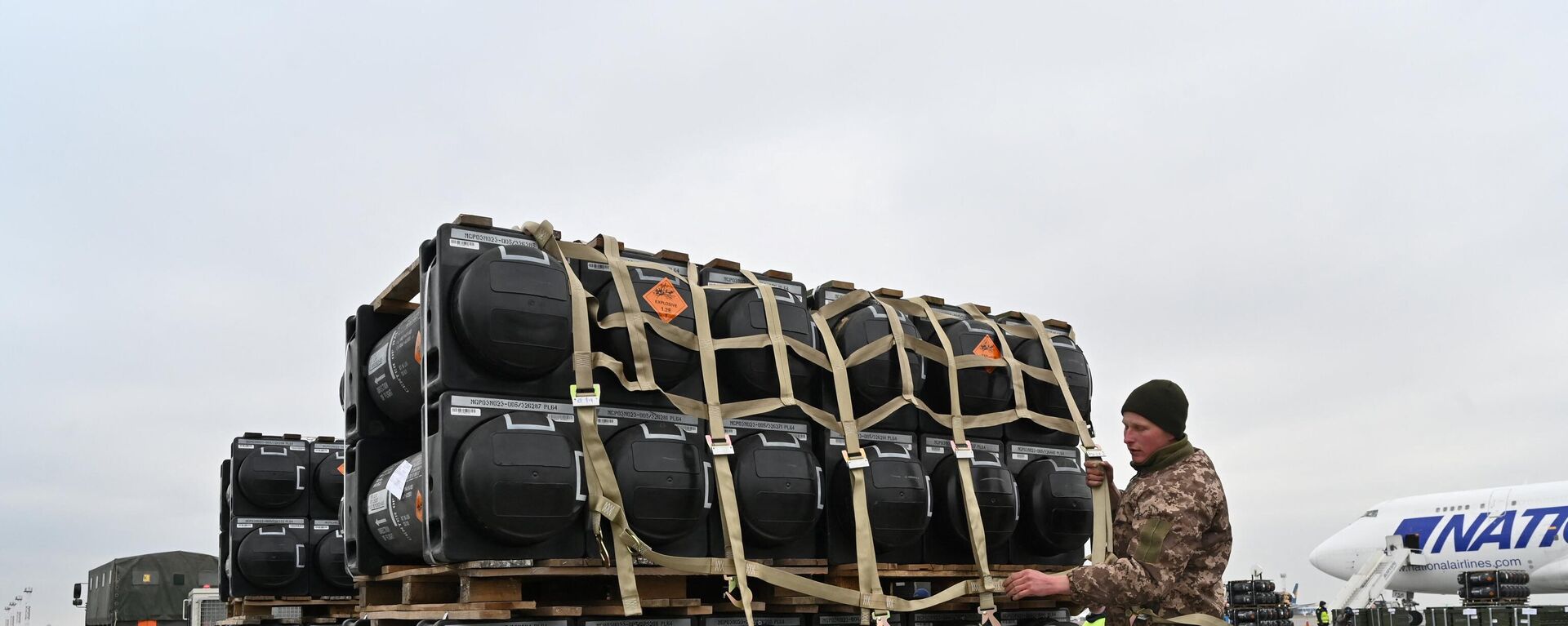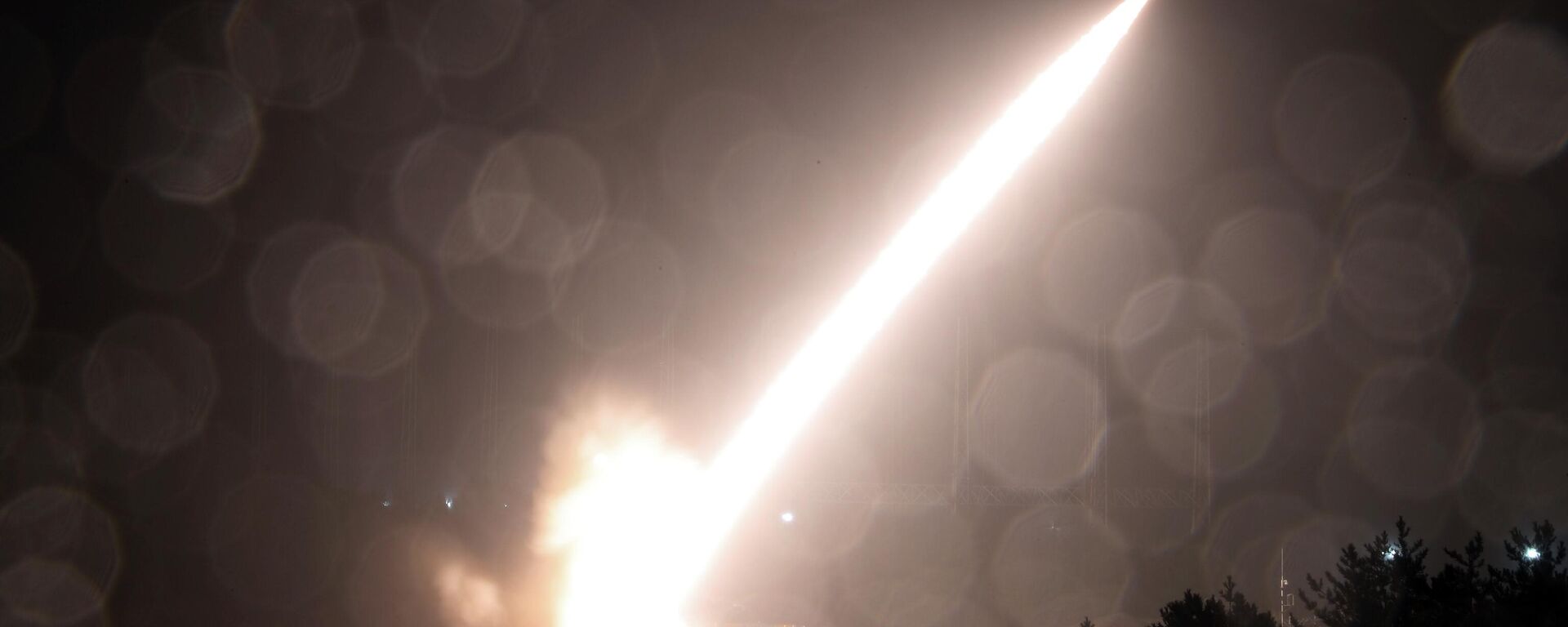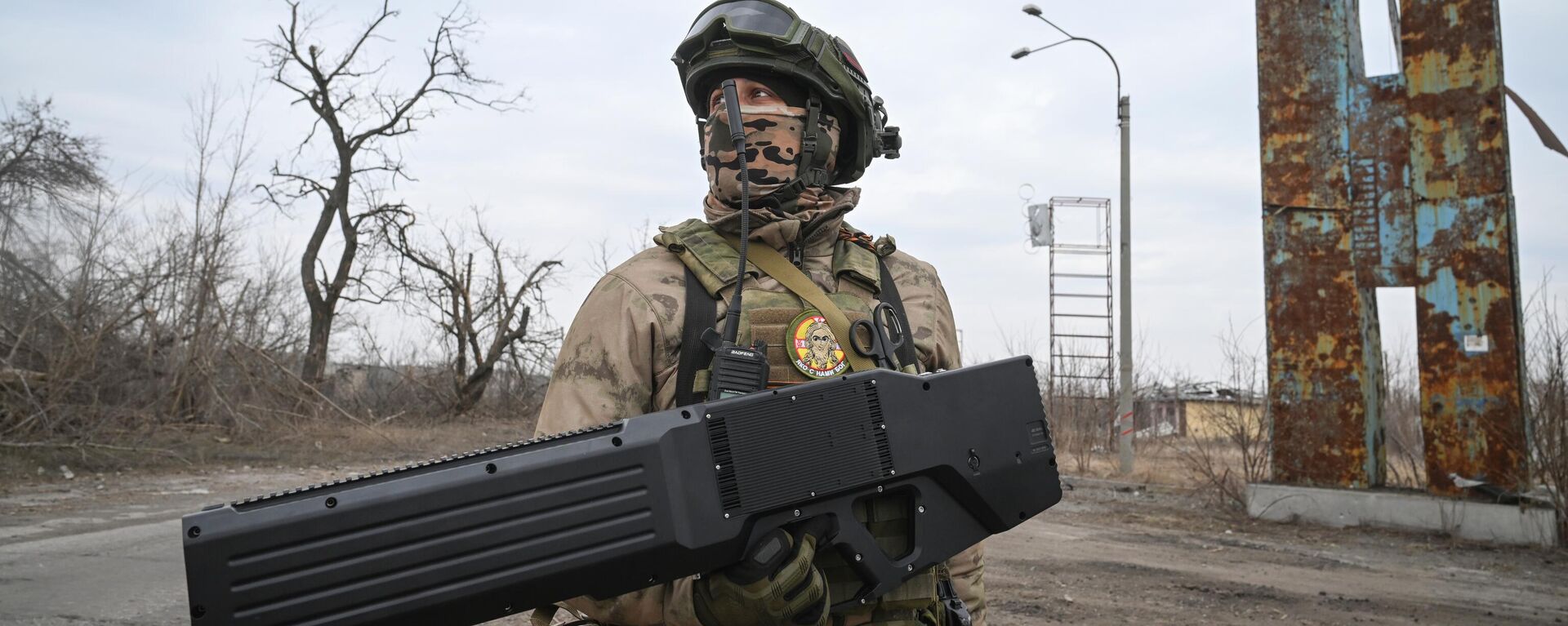https://sputnikglobe.com/20240425/why-bidens-new-ukraine-aid-package-wont-hinder-unstoppable-russian-advance-1118112096.html
Why Biden's New Ukraine Aid Package Won't Hinder Unstoppable Russian Advance
Why Biden's New Ukraine Aid Package Won't Hinder Unstoppable Russian Advance
Sputnik International
US President Joe Biden signed into law a foreign aid bill that includes $61 billion for Ukraine on April 24. The Pentagon signaled it will provide $1 billion in ammo for the Kiev regime as soon as possible. Could this move halt the Ukrainian Armed Forces' retreat?
2024-04-25T15:53+0000
2024-04-25T15:53+0000
2024-04-25T15:53+0000
russia's special operation in ukraine
us
joe biden
dmitry peskov
lindsey graham
ukraine
kiev
russia
pentagon
nato
https://cdn1.img.sputnikglobe.com/img/07e8/04/15/1118043678_0:198:2937:1850_1920x0_80_0_0_0a6aa12394afd775979b1a7c717a4e4e.jpg
Joe Biden announced on Wednesday that Ukraine will receive NATO-grade munitions soon, with the Pentagon poised to supply $1 billion in new military materials to the Kiev regime. The package includes air defense ammo, artillery rounds, armored vehicles and other military equipment.It has been revealed that Team Biden secretly approved the delivery of the long-range Army Tactical Missile System (ATACMS) capable of hitting targets 300 km away in February. The weapons systems reportedly arrived in Ukraine this month.Western press met the signing of the $61 billion bill and the news about ATACMS delivery with enthusiasm. In particular, Republican Senator Lindsey Graham told Fox News on Sunday that Ukraine will secure "ATACMS to knock the bridge down between Crimea and Russia," referring to the Crimea (or Kerch) Bridge, an element of Russia's civilian infrastructure in the region.Washington's bellicose rhetoric has failed to dishearten Moscow: Kremlin spokesperson Dmitry Peskov told journalists that new arms supplies would not tip the situation on the battlefield in Kiev's favor. He drew attention to the fact that previous weapons deliveries failed to upend the dynamics of the Russian special military operation. According to Peskov, the situation on the front speaks for itself.Since the beginning of this year, the Russian Armed Forces have taken control of over 400 square kilometers in the special military operation zone, as per the Russian Ministry of Defense.Russian troops are continuing their offensive operations in the area of Ocheretino and Chasov Yar to expel Ukrainian forces from the DPR.Moscow has made it clear that NATO's deliveries of long-range missiles, including ATACMs, would require the Russian military to expand the "buffer line" in the zone of the special military operation to ensure the security of civilians living in border regions and new Russian territories.Meanwhile, international observers tell the US mainstream press that a new military package may help Ukraine avoid sweeping defeat but is unlikely to ensure the Kiev regime's victory. "It offers Ukraine the prospect of staying in the war this year," presumed British professor and security expert Michael Clarke, as cited by ABC News. The media outlet acknowledged that Russia is continuing to advance along the entire 1,000-kilometer front line and is likely to make further gains on the battlefield.
https://sputnikglobe.com/20240425/scott-ritter-hefty-us-military-aid-for-ukraine-wont-hamper-russias-strategic-advantage-1118110905.html
https://sputnikglobe.com/20240425/us-supplied-atacms-missiles-will-not-help-ukraine-prevail-on-battlefield---expert-1118109833.html
https://sputnikglobe.com/20240424/situation-on-battlefield-clear-new-military-aid-to-ukraine-to-not-change-dynamics---kremlin-1118088635.html
ukraine
kiev
russia
Sputnik International
feedback@sputniknews.com
+74956456601
MIA „Rossiya Segodnya“
2024
News
en_EN
Sputnik International
feedback@sputniknews.com
+74956456601
MIA „Rossiya Segodnya“
Sputnik International
feedback@sputniknews.com
+74956456601
MIA „Rossiya Segodnya“
biden's new ukraine package, us atacms missiles, ukraine war, us military aid to ukraine, russian advance in ukraine, russia gains on the battlefield, russia took strategic settlements in ukraine, chasov yar, chasiv yar, ukrainian military is on defensive, ukrainian military is retreating
biden's new ukraine package, us atacms missiles, ukraine war, us military aid to ukraine, russian advance in ukraine, russia gains on the battlefield, russia took strategic settlements in ukraine, chasov yar, chasiv yar, ukrainian military is on defensive, ukrainian military is retreating
Why Biden's New Ukraine Aid Package Won't Hinder Unstoppable Russian Advance
US President Joe Biden signed into law a foreign aid bill that includes $61 billion for Ukraine on April 24. The Pentagon signaled it will provide $1 billion in ammo for the Kiev regime as soon as possible. Could this move halt the Ukrainian Armed Forces' retreat?
Joe Biden announced on Wednesday that Ukraine will receive
NATO-grade munitions soon, with the Pentagon poised to supply $1 billion in new military materials to the Kiev regime. The package includes air defense ammo, artillery rounds, armored vehicles and other military equipment.
It has been revealed that Team Biden secretly approved the delivery of the long-range Army Tactical Missile System (
ATACMS) capable of hitting targets 300 km away in February. The weapons systems reportedly arrived in Ukraine this month.
Western press met the signing of the $61 billion bill and the news about ATACMS delivery with enthusiasm. In particular, Republican Senator Lindsey Graham told Fox News on Sunday that Ukraine will secure "ATACMS to knock the bridge down between Crimea and Russia," referring to the Crimea (or Kerch) Bridge, an element of Russia's civilian infrastructure in the region.
Washington's bellicose rhetoric has failed to dishearten Moscow: Kremlin spokesperson Dmitry Peskov told journalists that new arms supplies would not tip the situation on the battlefield in Kiev's favor. He drew attention to the fact that previous weapons deliveries failed to upend the dynamics of the Russian special military operation. According to Peskov, the situation on the front speaks for itself.
Since the beginning of this year, the Russian Armed Forces have taken control of over 400 square kilometers in the special military operation zone, as per the Russian Ministry of Defense.
February 17: Avdeyevka, a city in the Donetsk People's Republic (DPR), was liberated, moving the front line away from Donetsk and scaling down the Kiev regime's terrorist attacks against Donetsk civilians.
February 20: the village of Krynki in the Kherson region was taken under control, preventing Ukraine from deploying landing troops on the left bank of the Dnepr River.
February 22: the Russian military took control of the village of Pobeda, from which the enemy routinely shelled Maryinka and the Petrovsky district of Donetsk.
February 26-27: the settlements of Lastochkino and Severnoye (DPR) were liberated, ensuring strategically advantageous positions for the Russian military.
February 28: Russian forces took the village of Petrovskoye (DPR) located around 5 km northwest of Avdeyevka.
March 12: the settlement of Nevelskoye, located in the Yasinovatsky district of the DPR (27 km from Avdeyevka) was liberated.
March 17: Russian troops liberated the village of Mirnoye in the
Zaporozhye region, laying the groundwork for the complete liberation of the strategic settlement of Rabotino.
March 19 and March 21: the villages of Orlovka and Tonenkoye (DPR) were liberated, moving the frontline further to the west.
March 24: Russian forces retook the village of Krasnoye (DPR), improving their tactical frontline positions.
April 5: the village of Vodyanoye (DPR), located southwest of Avdeyevka, was taken from the enemy.
April 13: the village of Pervomayskoye (DPR) was liberated, ensuring further dismantling of the enemy's defense lines.
April 22: Novomikhailovka and Bogdanovka (DPR) were liberated. The Russian Army now controls the road to Ugledar, upending the enemy's logistics capabilities.
Russian troops are continuing their offensive operations in the area of Ocheretino and
Chasov Yar to expel Ukrainian forces from the DPR.
Moscow has made it clear that NATO's deliveries of long-range missiles, including ATACMs, would require the Russian military to expand the "buffer line" in the zone of the special military operation to ensure the security of civilians living in border regions and new Russian territories.
Meanwhile, international observers tell the US mainstream press that a new military package may help Ukraine avoid sweeping defeat but is unlikely to ensure the Kiev regime's victory.
"It offers Ukraine the prospect of staying in the war this year," presumed British professor and security expert Michael Clarke, as cited by ABC News. The media outlet acknowledged that Russia is continuing to advance along the entire 1,000-kilometer front line and is likely to make further gains on the battlefield.





